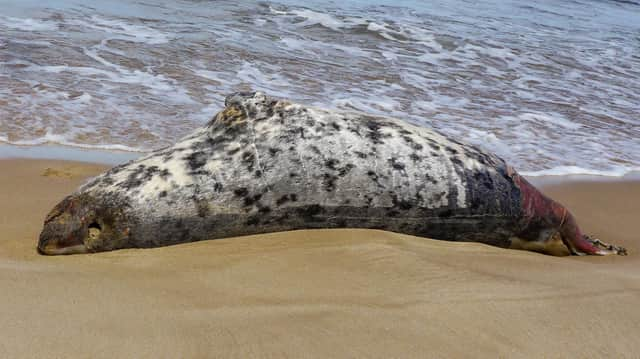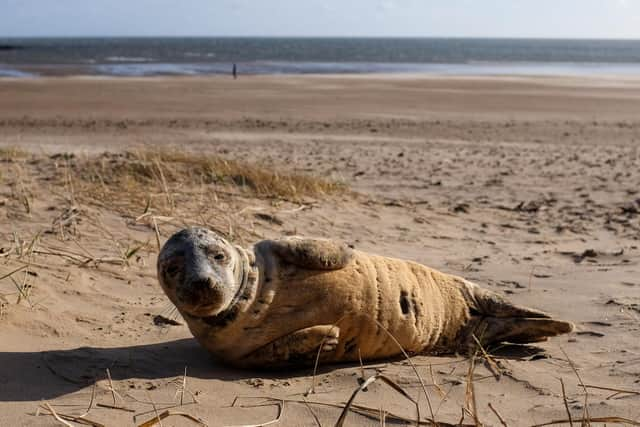Council advice on what to do if you spot a washed up seal on the beach after three wash on on South Tyneside's beaches


Multiple sightings of dead seals have been reported along the North East coast over the past few weeks.
Washed up pups have been spotted along the coast from Roker as far up north as Amble beach in Northumberland, causing concern to some residents, who shared the sightings on social media.
Advertisement
Hide AdAdvertisement
Hide AdLast week South Tyneside Council removed three dead seals which had been washed on the area’s beaches.


A South Tyneside Council spokesperson said: “The Council can and does collect dead seals that are washed up on our beaches. This happens occasionally throughout the year.
“Historically we collect more seals over the winter period, due to adverse weather conditions. Sadly last week three lifeless seals were removed from the shore.
“Seals often come ashore to rest, digest their food and regain their strength, particularly after high tides or stormy weather which can leave them exhausted. We would remind people not to approach any seals while they are resting on the beach or rocks and to admire them from a distance.”
Advertisement
Hide AdAdvertisement
Hide AdSeal pups suffer a high mortality and only half of the newborns each year live to their first birthday, Dan Jarvis from the British Divers Marine Life Rescue (BDMLR) said.
He explained: “The estimate is between 50 and 70% of the pups born in a year don’t survive their first year because of all the various pressures that they’re under.
“It's quite a tough life for them and when you combine that with stormy seas, some of them don’t make it unfortunately, which is where some of the dead ones will be coming from potentially, as well as injuries and infections. Those that might have been separated too soon from their mam could starve to death as well.“
According to the National Trust the Farne Islands is home to one of the largest colonies of Atlantic grey seals in England. In 2019 the number of seal pups born on the islands reached a record high of 2,828 - an increase of 50.7 per cent over the last five years.
Advertisement
Hide AdAdvertisement
Hide AdDan said: "At the moment it’s the pupping season for grey seals, so that’s possibly where quite a few of them are coming from.
“With the larger number of animals around, inevitably you’ll find a large number of potential casualties as well,” Dan said.
The sighting can often be gruesome as the animals often suffer head injuries and birds feed on their corpses.
Dan said: “It’s usually due to decomposition and also scavenger damage by seabirds."
If you come across a deceased seal, keep away from it and contact the Council on 0191 427 7000.
Call BDMLR on 01825 765 546 if you spot a an injured seal.